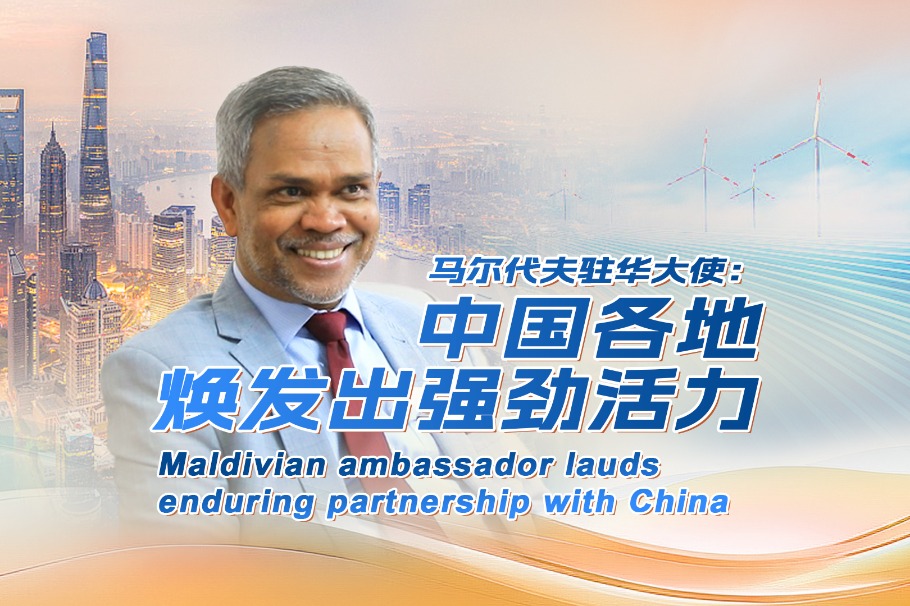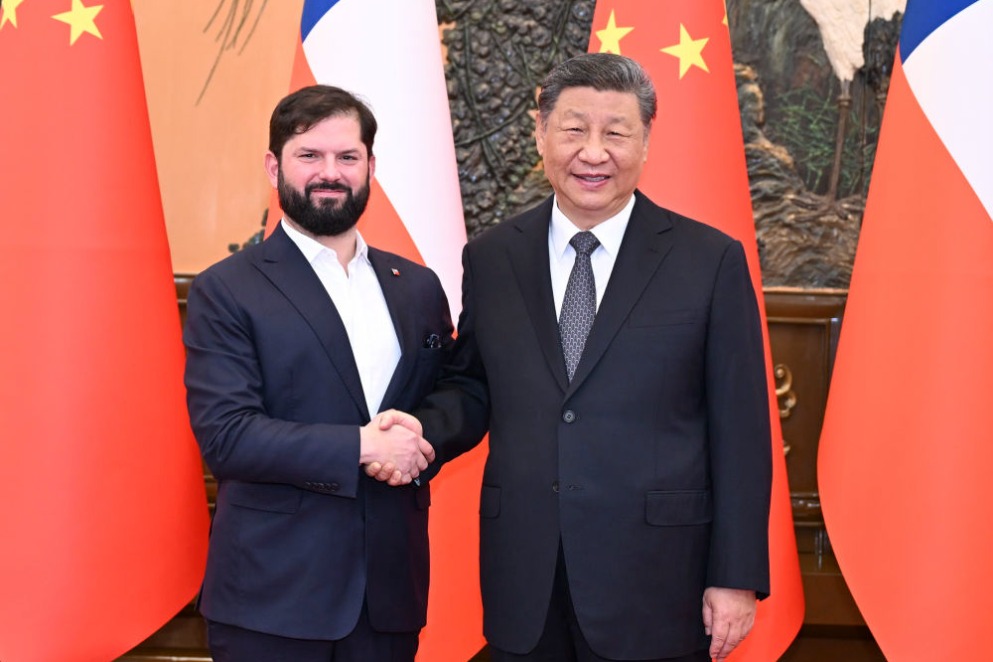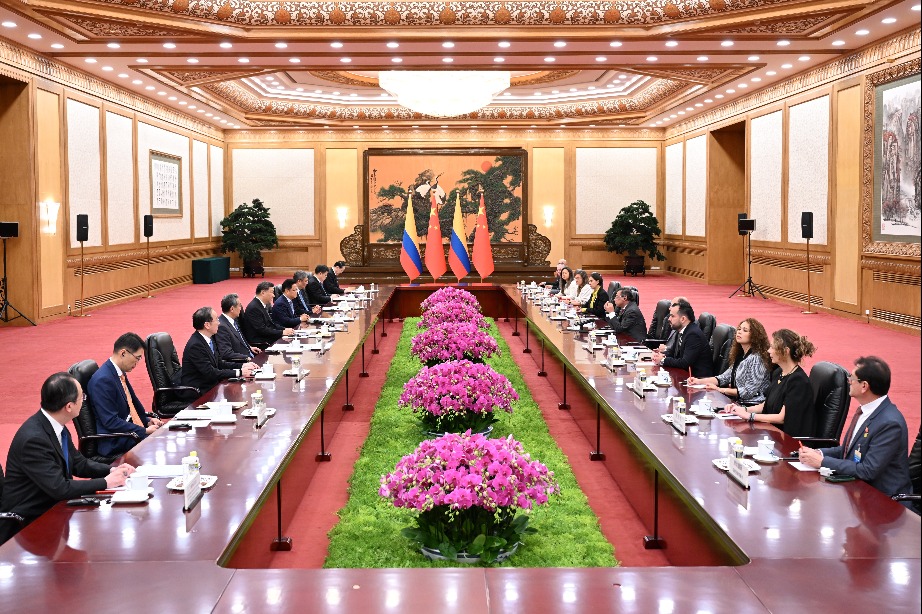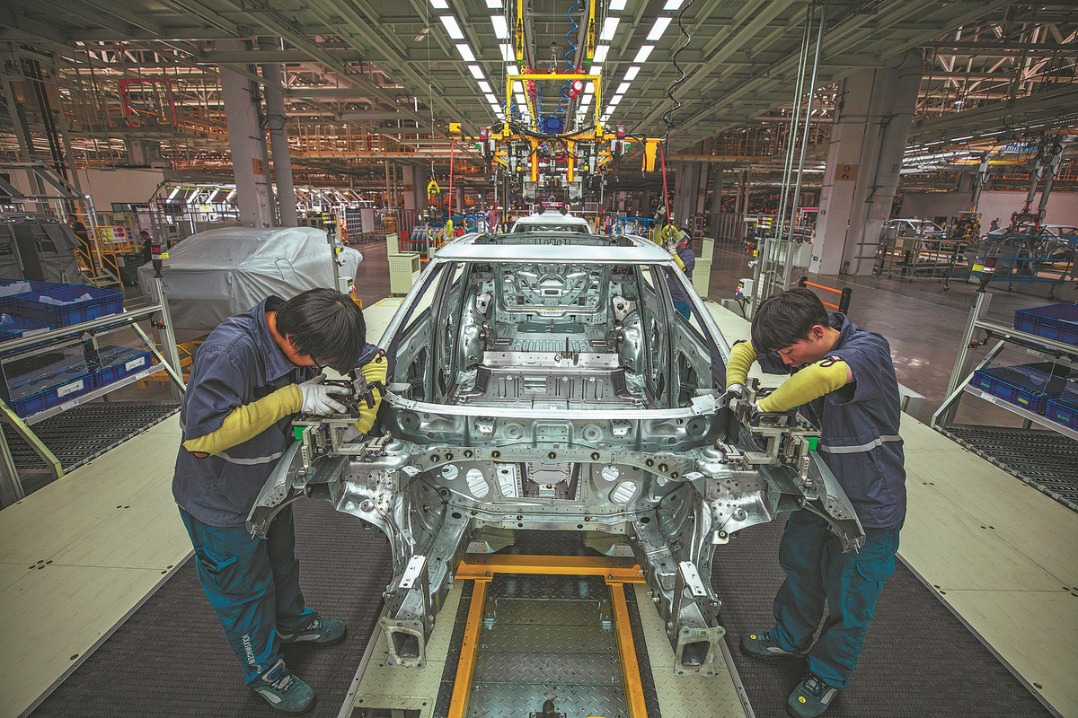Side by side

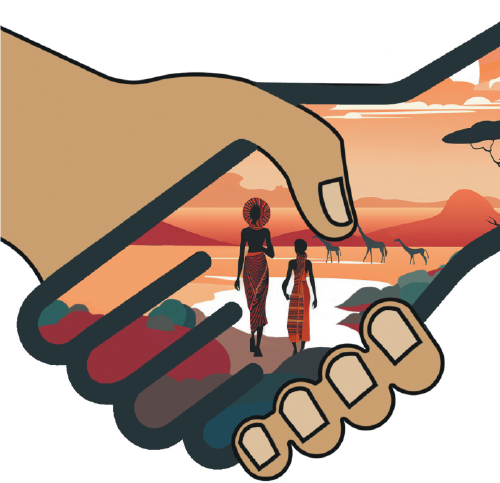
China offers examples of best practices that can help accelerate the development of African countries
Editor's note: The world has undergone many changes and shocks in recent years. Enhanced dialogue between scholars from China and overseas is needed to build mutual understanding on many problems the world faces. For this purpose, the China Watch Institute of China Daily and the National Institute for Global Strategy, Chinese Academy of Social Sciences, jointly present this special column: The Global Strategy Dialogue, in which experts from China and abroad will offer insightful views, analysis and fresh perspectives on long-term strategic issues of global importance.
The coming years will be a key period for developing countries to pursue industrialization and catch up with their developed peers. China has made major progress in industrialization. Africa is still in the initial stage of modernization and is moving toward a promising future. The two sides are partners both politically and economically, and can learn from each other's civilization to form a community with a shared future for mankind in the new era.
Globally, China-Africa cooperation contributes to the building of a multipolar world, promotes a more equitable and fairer international order, and helps shape a world where different civilizations coexist peacefully.
History has proved that both a unipolar world and a bipolar one could not break away from the old pattern of hegemony, power politics, division and confrontation. Today, emerging economies and developing countries are narrowing the gap between them and Western countries or even overtaking the latter in some areas, which facilitates the transition toward a more balanced and multipolar world.
As Steven Gruzd, head of the African Governance and Diplomacy Programme and the Russia-Africa Project at the South African Institute of International Affairs, said during our research visit that China is the largest developing country, and Africa is the continent with the most developing nations. The two sides joining hands will strengthen the developing world and accelerate the evolution toward a multipolar world.
The developments in the world call for a more just and equitable global order. China, the world's second largest economy, and Africa, a continent with 54 members of the United Nations, should jointly advance the reform of the global governance system, including the UN, the World Trade Organization and the International Monetary Fund, and build an international order that can better represent the interests of developing nations, and reflect the trend of human progress.
China is an ancient oriental civilization, and Africa also has its distinctive civilizations. So, the two sides learning from each other and developing together is of great significance for building a world featuring a diversity of civilizations. China has explored a path to modernization suitable for its national conditions, setting an example for other developing countries to pursue modernization. China's success has provided an alternative to the Western-style modernization characterized by colonization and plunder.
China and Africa complement each other with their respective advantages, and thus their cooperation has huge potential and promising prospects.
China's first-mover advantage in industrialization could help Africa meet its pressing needs for development, and Africa's vast market and rapidly growing economy also benefit China. On the one hand, after more than four decades of reform and opening-up, China has made remarkable progress in economic development and has built strength in infrastructure, manufacturing, new energy and the digital economy, all areas where Africa urgently needs to develop. On the other hand, the fast growing population of Africa is creating a vast market, which can help China boost its development.
China and Africa can carry out win-win cooperation. China's advantages in new energy development, such as wind, solar and hydro power, can help meet the demand of Africa for clean energy. Africa's weak manufacturing base hinders the improvement of people's livelihoods and industrial development. The continent is plagued by severe power shortage, which hobbles its economic development. China's industrial prowess and Africa's rapid economic growth are complementary to each other.
China was once a poor country, with the majority of its population stuck in poverty. But it has managed to eradicate absolute poverty in a few decades, which serves as an inspiration for Africa, a continent still suffering the scourge of impoverishment. Charles Onunaiju, the director of the Centre for China Studies in Nigeria, published a book A Century of the Communist Party of China: Why Africa Should Engage its Experience, expressing his belief that the African countries may use China's development experience as a reference to help realize their goals of rapid development and poverty elimination. And he suggested that they not only have a desire to learn from China's experience, but also have a strong desire to learn from the Chinese model.
The author is a deputy director of the Institute of World Economics and Politics at the Chinese Academy of Social Sciences, and a committee member of the National Institute for Global Strategy at the CASS. The author contributed this article to China Watch, a think tank powered by China Daily.
The views do not necessarily reflect those of China Daily.
Contact the editor at editor@chinawatch.cn.
















